Uncle Frank Ending: What Happened, And Did It Work?
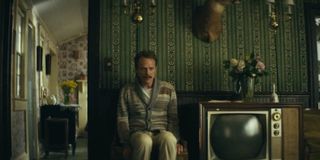
Uncle Frank is the new Amazon Original Movie written and directed by Alan Ball. It stars Paul Bettany as the title character, Sophia Lillis as his niece Beth, and Peter Macdissi as his long-time boyfriend Wally. Uncle Frank is about a man who makes a comfortable life in New York but travels back home for his father’s funeral to a family he’s been avoiding. The Uncle Frank ending took an unexpected happy turn.
The Uncle Frank ending was hopeful and optimistic in a way the movie hadn’t been before. After the first viewing of the film, I questioned if the happy ending made sense in the context of Frank's familial traumas, and I think it does. Let me explain why and discuss other elements of Uncle Frank.
Warning: This post contains Uncle Frank spoilers. Don’t read ahead if you haven’t seen the movie.
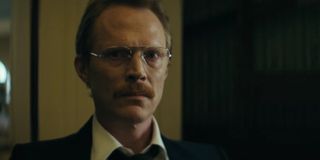
The Reading Of The Will In Uncle Frank
The final half of Uncle Frank kicks off with the family gathering to hear Daddy Mac's (Stephen Root) will. It starts like any other will reading with him leaving his wife, sister, and children money and his belongings. Frank is left out of receiving any possessions, and then Mac finally mentions Frank’s name.
He states that he will be leaving Frank nothing but disgust for engaging in sexual activity with men. Frank then rushes out before his family can really process it all. Mac decides to offer one last traumatizing moment to his son by outing him to his entire family in an embarrassing and humiliating way.
The scene very much confirms what type of man Mac Bledsoe was and once again proves Stephen Root's talent as an actor.
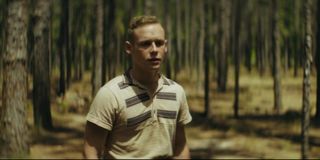
The False Start Ending In Uncle Frank
Uncle Frank then takes a darker turn when Frank continues to spiral out of control. It leads him to the lake where he once swam with his young lover Sam (Michael Perez). The incident resulted in Daddy Mac catching them together, then threatening to kill them both.
CINEMABLEND NEWSLETTER
Your Daily Blend of Entertainment News
Later Frank confronts Sam and tells him that he doesn’t want to go to hell or see him ever again. Later Frank finds a letter from Sam (a possible suicide note) that states that he knows he’s gay and hopes Frank can forgive him.
Frank discovers Sam’s body floating in the same lake. The film doesn’t confirm if Sam’s death was an accident, suicide, or even possibly a hate-crime murder. I believe that the film heavily hints toward suicide. Present-day Frank is seen staring into the lake. Uncle Frank then shows Beth reaching Wally, who immediately becomes concerned after learning about the will reading and drunk Frank leaving the wake. When Beth and Wally finally reach the lake, they only find Frank’s clothing and the necklace that Wally and Frank wear. Wally fears the worst.
Viewers watch Beth and Wally in the motel together, as Wally starts to mourn Frank. Then a drunk Frank shows up. The film allows viewers to fear that Frank died: I started to think that Uncle Frank was about to be a film where the main character dies, and only after his death does his family regret how they treated him. However, that was not the case and I believe Ball let viewers intentionally believe this so that the true ending would be more satisfying.
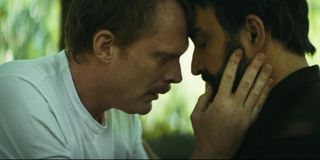
Acceptance In Uncle Frank
Frank and Wally then have an altercation that results in Frank physically and verbally assaulting Wally. Frank ends up at the cemetery where he visits his father’s grave first before going to Sam’s grave. He breaks down and asks Sam for forgiveness.
This moment is important because it’s not his father who he is asking for forgiveness but the boy he loved and lost. He now knows that he has not wronged his father for being gay, but wronged Sam for not allowing himself to accept that he was gay all those years ago. This moment allows Frank to accept his sexuality completely.
He then goes to see his family, after a little push from Beth. They almost all embrace him with open arms and acceptance. It’s a surprising revelation for Frank and the viewers.

How The Ending In Uncle Frank Compares To The Beginning
Uncle Frank is one of those exciting films where the ending and beginning are inverses of one another. The movie opens with Frank, and Beth to a lesser degree, not completely being included with their family. When everyone is giving Daddy Mac his presents, Frank doesn’t even feel comfortable actually sitting with the rest of the family. He’s hanging by the door.
The ending has Frank, Beth, and their entire family (now including Wally) sitting around and enjoying one another’s company. It’s like without Daddy Mac, a weight and barrier have been lifted off the family.
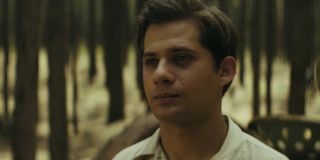
Alan Ball’s Inspiration For Uncle Frank
In an interview with Independent, Ball shared that Uncle Frank wasn’t an autobiography but some of the film was inspired by moments in his life. Specifically, the idea from the film came from when he came out to his mother at 33. He said his mother said that she blamed his father because she suspected that he was that way as well. Ball’s father was dead by the time of this reveal, so he couldn’t ask him more about it. However, his mother offered some more insight into his father a little later.
And she very nonchalantly said, ‘That’s where Sam Lassiter drowned.’ And I’d never heard of Sam Lassiter. So I said, ‘Well, who’s that?’ And she said, ‘He was a real, real, real good friend of your daddy’s.’” Lassiter had died when both were youngsters working in a summer camp. “And apparently, my dad had accompanied Sam’s body on a train back to their hometown.
Ball then started to think about how it must have been like for his father (if he was gay) growing up at that time. Paul Bettany also has a connection to the material. Bettany revealed to The Playlist that his father was gay. He came out of the closet at 63 years old, but went back in it when his lover of 20-years died. Bettany shared how painful that was to watch his father deny that part of himself.
It was an awful thing to see. [To] watch him unable to mourn the love of his life. And it struck me that I might have a perspective that was useful to Alan in terms of realizing the vision for this character who is struggling to reconcile two parts of his life.
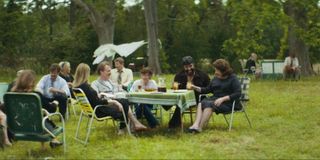
Does The Uncle Frank Ending Work?
Most of Uncle Frank argues that Frank can only be himself when he’s in New York and away from South Carolina and his family. His niece Beth seems to be the only one in his family who understands him. This is why it’s a little surprising when his family, especially his brother Mike (Steve Zahn), accepts him without shaming him for being gay. However, I think the film does a good job of allowing this ending to be realistic and plausible.
At the funeral, Mike tells Frank that he regrets them not being close. He also shows that he feared Daddy Mac a little. He stated that he feared not making Daddy Mac his best man at his wedding. We also see in the beginning of Uncle Frank that Mike isn’t like Daddy Mac but tries to be to impress him. Without Daddy Mac being around, Mike is able to be more open to his brother without the pressure of pleasing their father. We also don’t see everyone in Frank’s family accept him. His sister, Neva's (Jane McNeill) husband Beau (Burgess Jenkins) is not able to accept Frank.
Aunt Butch (Lois Smith) also tells Frank that he’s going to hell for being gay, but even Frank acknowledges that that’s the best he’s going to get from Aunt Butch. Though Aunt Butch tells him he’s going to hell, she stays around to hang out with the family and doesn’t shun Frank. Frank’s sister-in-law Kitty (Judy Greer) and his mother Mammaw (Margo Martindale) are the most open to him, but they also rely on stereotypes about gay people, so it’s still a long road for the family to understand Frank, but they’re willing to try.
Uncle Frank is available to stream on Amazon Prime. Stream it here.
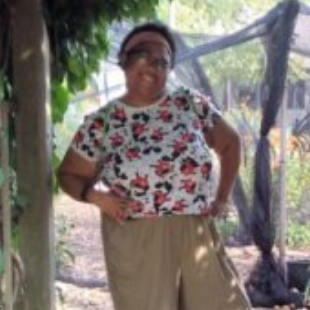
Spent most of my life in various parts of Illinois, including attending college in Evanston. I have been a life long lover of pop culture, especially television, turned that passion into writing about all things entertainment related. When I'm not writing about pop culture, I can be found channeling Gordon Ramsay by kicking people out the kitchen.
Most Popular






